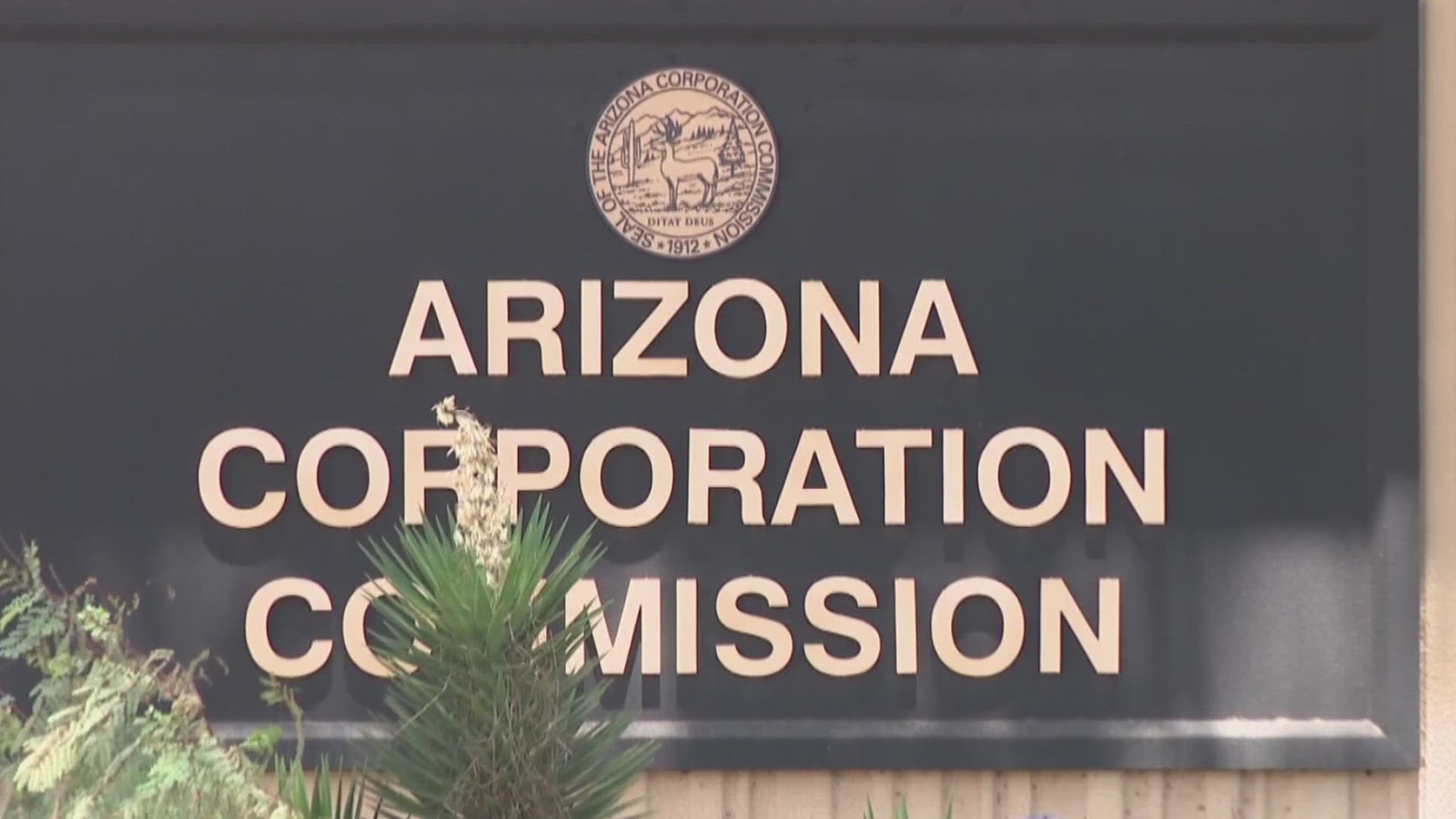PHOENIX — The Chairman of the Arizona Corporation Commission is responding to another commissioner’s request to clarify how to enforce the commission’s strict code of ethics.
Commission Chairman Jim O’Connor says in a letter filed this week that he wants to wait to act until the commission hires a new chief attorney, who acts as the ethics officer.
Statement suggests commission will have new ethics officer
“As the Commission is in transition to hiring a General Counsel, I posit that the new Ethics Officer review and propose any needed revisions to their processes and procedures for handling a complaint,” O’Connor said in the Dec. 26th letter. “I propose that once hired, he or she should review their duties as the Ethics Officer, and make recommendations, if any, for changes to their charge of handling or investigating ethics complaints. This does not preclude the responsibilities and authority of the Attorney General as set forth in their existing statutory duties of enforcement.”
O’Connor’s statement suggests General Counsel Robin Mitchell, who has been the ACC Ethics Officer, is or will be out of that position.
Tovar and Márquez Peterson said ethics code lacks clarity
On October 30th, Commissioner Anna Tovar formally asked O’Connor to address questions regarding the code of ethics. Tovar, a Democrat, and Commissioner Lea Márquez Peterson, a Republican, said during a March public meeting that the code of ethics lacks clarity on how complaints should be investigated.
Tovar says she has concerns about commissioners’ duties related to open meeting law, ex-parte communications, undue influence over employment decisions at the commission, involuntary staff departures, and questionable media posts by commissioners. O’Connor told 12News earlier this month he was not aware of any pressing ethical matters facing commissioners.
In her October letter to O’Connor, Tovar wrote that the commission’s legal division already drafted a proposal for handling ethics complaints over the summer. Tovar requested O’Connor schedule the matter in a future public meeting.
“The Commission tasked staff with drafting a proposed procedure, Staff completed that task, and the Commission should consider the proposal,” Tovar told 12News by email on Dec. 7th. “I think it is time for the Commission to review our obligations under the Code and the law.”
In his Dec. 26th letter, O’Connor said he is not aware of ethics complaints “not proceeding as the process intended.”
Five commissioners expected to avoid “appearance” of partiality
The five Commissioners are expected to act as impartial judges and are instructed by the code of ethics to have no communication with people representing industries whose interests are affected by Commission decisions, unless those individuals are registered lobbyists. The registration requirement does not apply to “subject matter experts” whose purpose is to answer “technical questions” to a Commissioner.
As 12News has reported, a prominent consumer advocate filed an ethics complaint against Commissioner Kevin Thompson in February for meetings Thompson had with investors in New York. Notes of those meetings show Thompson had back-and-forth conversations with investment groups – at least broadly - about subjects related to Arizona energy policy. According to Thompson, his meetings were proper and were meant to assure investors Arizona is an opportune place to do business.
Commissioners handled the complaint behind closed doors. Three commissioners voted not to investigate the complaint and dismissed the matter. During that meeting, Tovar said the code of ethics needed clarification.
Former Commission Chair Bob Burns told 12News he believed Thompson’s meetings compromised Thompson’s ability to be viewed as impartial in an adjudicated rate case.
Thompson participated in additional private meetings
In response to public record requests, the commission provided to 12News documents showing Thompson participated in three additional private meetings – two described as one-on-one meetings – with representatives of banks. According to emails, Commissioner Nick Myers participated in one of the meetings.
Myers did not respond for comment. A spokesperson for Thompson called ethical questions “unfounded political theatre”.
Industry standards and state law prohibit certain private communications between commissioners and individuals, especially during an open rate case.
NARUC, an association of utility regulators, published one guide on the subject that states meetings between commissioners and the investment community can be beneficial to both parties. It also stipulates commissioners should adhere first to their individual state’s code of ethics. The association warns of ex parte communications (communications made during an open rate case without proper notice to all parties and not on the public record). Such communications undermine “the fairness of a regulatory proceeding”, according to NARUC.
As 12News has reported, one February email to Thompson from J.P. Morgan regarding an upcoming meeting stated to Thompson, “These meetings will NOT be recorded, nor will they be open to the public.”
A spokesperson for Thompson told 12News the meetings did not violate ethics rules or ex parte law because Thompson did not discuss “open rate cases or specific utilities.”
Executive director and ethics officer did not answer questions
When 12News asked the commission’s ethics officer, Mitchell, and Executive Director Doug Clark if they could assure the public the original ethics complaint was handled appropriately, the two staff members declined to provide answers. At one point, the commission’s communications department prepared a public statement regarding the issue, but it was never released.
12News has requested the commission release the statement without redactions.
Up to Speed
Catch up on the latest news and stories on the 12News YouTube channel. Subscribe today.

